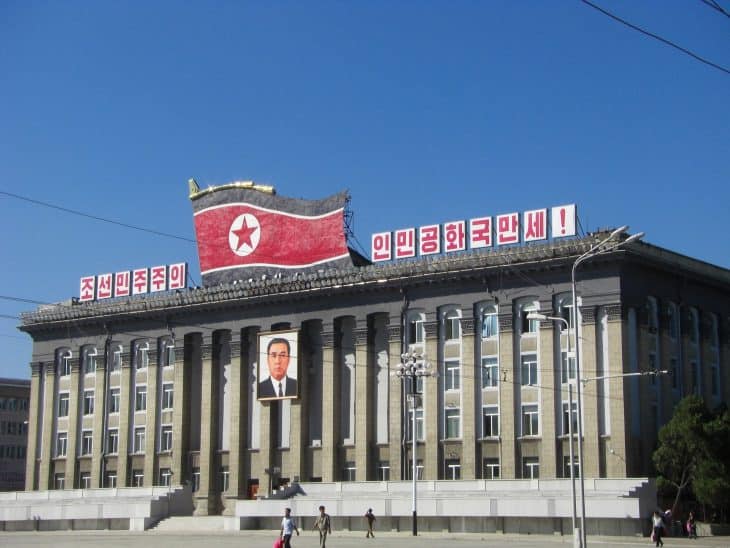
North Korea’s way of life interested the world. However, there is very little of what we know about the country. What we do know is that it is very different from South Korea. Several photos and articles are available online showing how eager the world is to know more about it. That said, what do we really know? Based on a few North Korea facts published online, the standard of living is higher in Pyongyang, the nation’s capital. And who doesn’t know the famous personalities of North Korea, including the current Supreme Leader Kim Jong-Un.
Life in Pyongyang is unquestionably better than life in the countryside. However, North Koreans must obtain permission to live in the capital. In fact, there are roadblocks on the country’s streets to stop you from traveling without permission. So, who lives in Pyongyang? The city is mostly filled with party loyalists and those with higher social status.
However, as the world becomes more innovated, and multiple channels of communication emerge, more and more information about what goes on inside North Korea is being leaked to other countries. Let’s take a look at 70 of the biggest North Korea facts. You’ll definitely learn a lot about the mysterious world that its citizens live in.
- As of the 2020 census, North Korea has a population of 25,779,000.
- North Korea covers a land area of 47,399 square miles.
- The largest stadium in the world is in North Korea and it can seat 150,000 people.
- North Korea covers 55% of the Korean Peninsula’s land area.
- The Demilitarized Zone between South and North Korea runs for about 240 kilometers.
- North Korea’s capital city is Pyongyang.
- Kim Jong-Un is a North Korean politician currently serving as the Supreme Leader of North Korea
- Korean is North Korea’s official language.
- KPW or Korean People’s Won is North Korea’s official currency.
- It was former North Korea President Kim Il Sung who created the Juche policy.
- The Korean Demilitarized Zone is the boundary between North Korea and South Korea.
- Pyongyang is North Korea’s major transport and industrial center.
- You can be sentenced to death if you distribute pornography, bibles, and movies from South Korea.
- North Korea also has a space agency called “NADA”.
- Red Star OS is the only computer operating system used in North Korea.
- Only government and military officials in North Korea can own cars or motor vehicles.
- It’s legal to smoke marijuana in North Korea.
- North Korea does not follow the standard or Gregorian calendar as they have their own calendar.
- People in North Korea cannot choose their choice of haircut as styles are also regulated by their supreme leader.
- You cannot wear denim jeans in North Korea as it is illegal.
North Korea was founded in 1948.
It was founded on October 3. 1948. The country’s official name is DPRK, or the Democratic People’s Republic of Korea. If you happen to know much about their culture and way of life, their local name is Choson or “Choson-minjujuui-inmin-koughwaguk“.
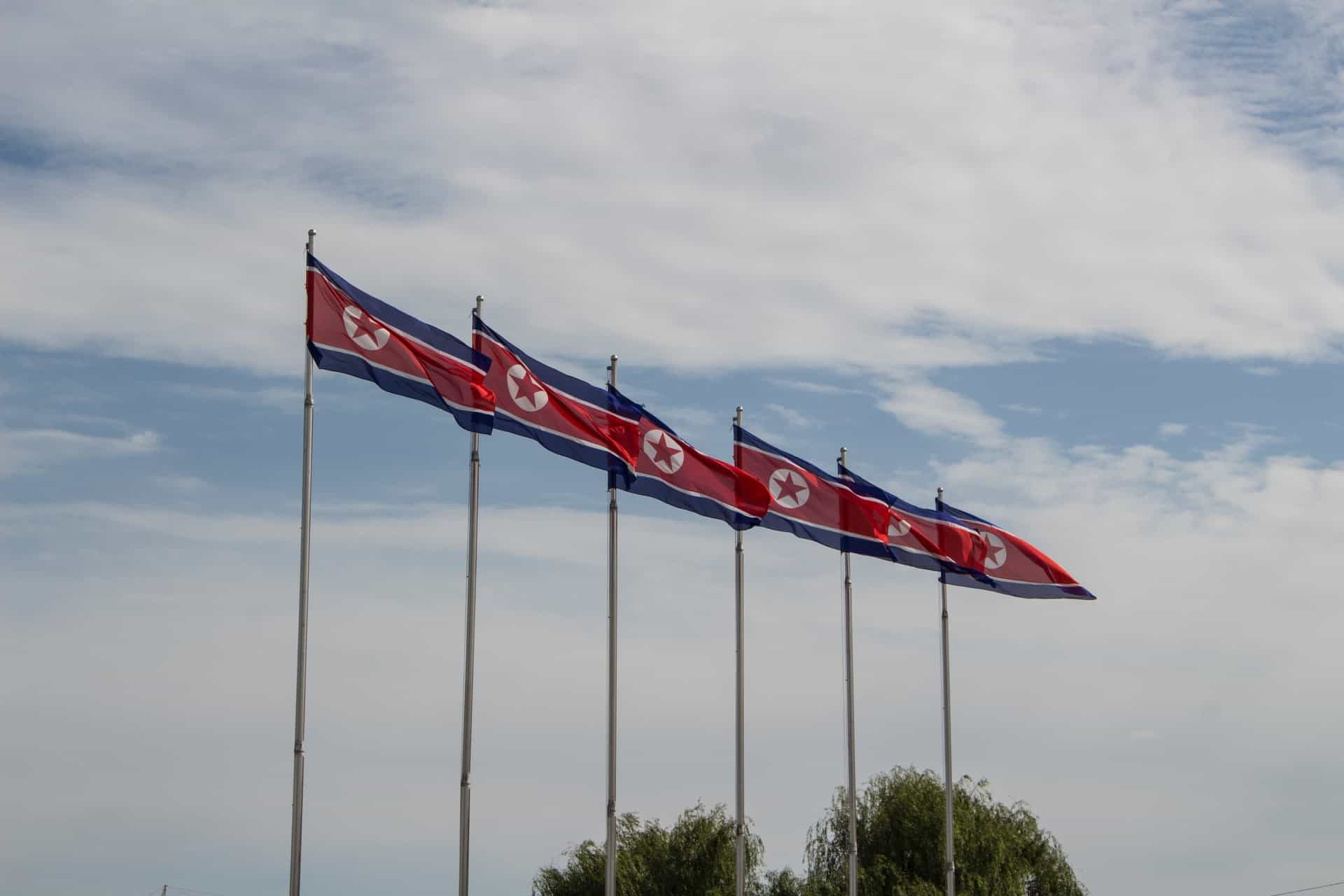
People in North Korea are convinced that there is only one Korea.
One of the most interesting North Korea facts in this list is that North Koreans believe that their country is a single country. Yes, they removed South Korea out of the picture. If you will take a map of the world, you will see both South Korea and North Korea.
However, North Koreans have a different belief in that. All the maps in schools show a united country with Pyongyang as the capital. Despite both countries looking towards unification, it is not without reasons that both countries is in such a status currently.
The greatest health threat in North Korea is hunger.
North Korea is 80% covered with uplands and mountains. So, when heavy rains or drought hits, food shortage is also widely spread. This is because the limited amount of their agricultural land is affected.
In the 1990s, 2.5 million people were killed because of famine. It’s a ratio of one out of ten North Koreans. According to a recent report, at least two-thirds of the population do not have the slightest idea of where they can get their next meal.
North Korea has strict border controls.
The DMZ or the Demilitarized Zone, which is 148 miles in length, is the most heavily guarded and militarized area in the world.
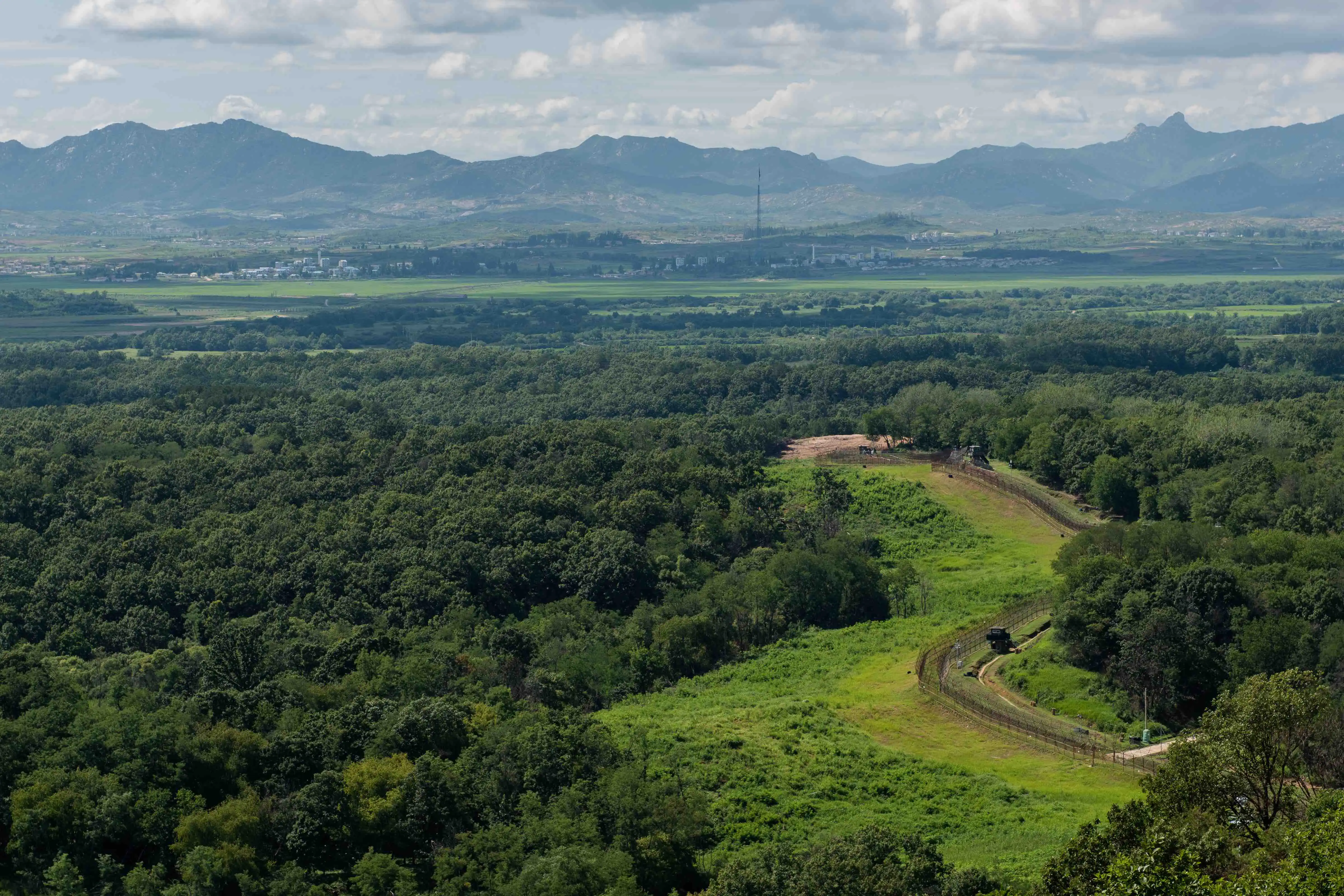
The DMZ is a buffer zone between North Korea and South Korea with a meeting point, the Joint Security Area (JSA), where negotiations take place at the western end of the DMZ.
Rice is a staple crop in North Korea.
Just like South Koreans, kimchi and rice are also eaten a lot in North Korea. In traditional meals, they also include noodles, bulgogi, and juk. They’re also known for their traditional alcohol or spirit called soju. If you happen to visit the country, you should not miss their cold noodles called “naengmyeon”.
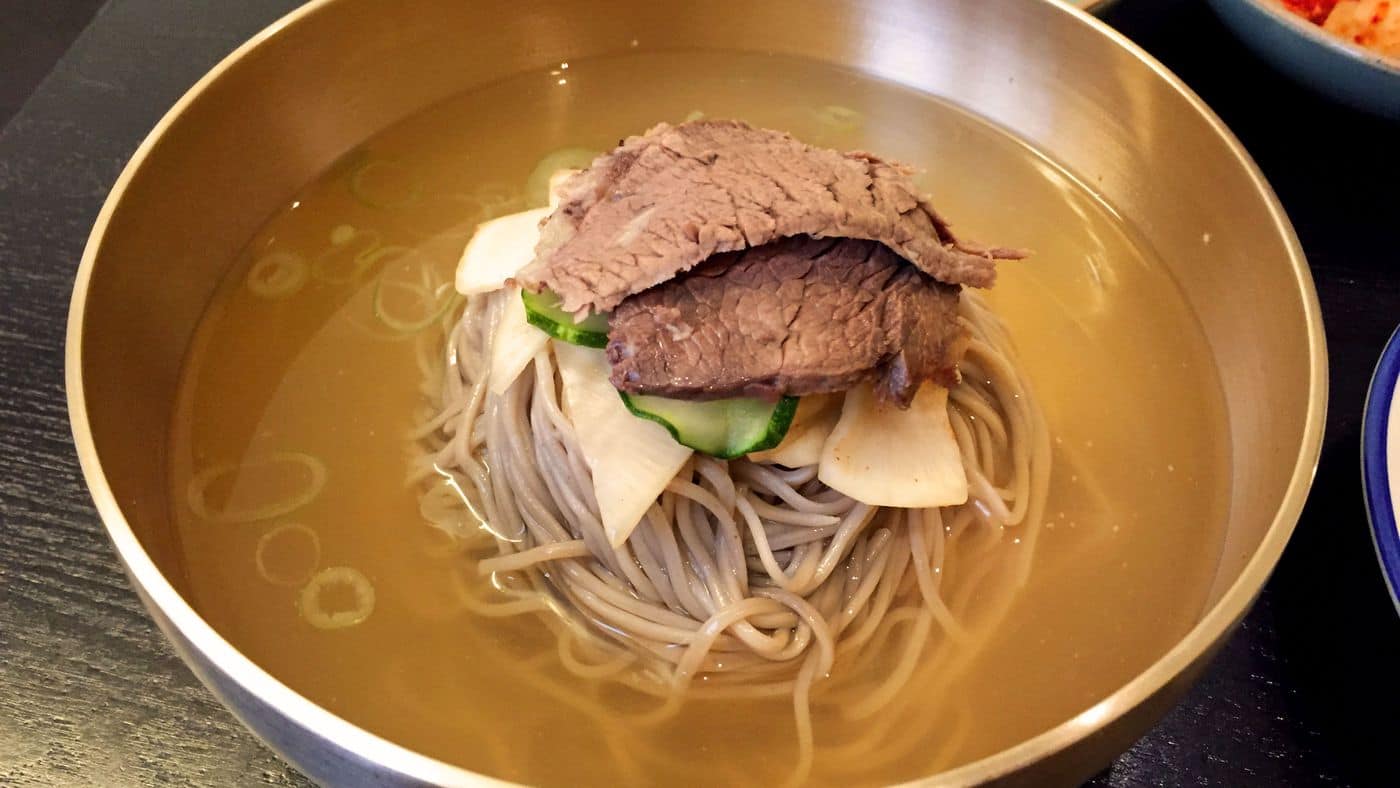
North Korea does not oblige its people to pay taxes.
North Korea is only one of the few places where residents do not have to shell out anything for taxes. In 1974, taxation was completely abolished. However, individuals and organizations who are making money outside of North Korea are still obligated to pay. There’s talk that this might change very soon as the government is already planning to reintroduce the concept of income tax to their people.
North Korea and South Korea used to be a single country.
The countries were divided after the end of World War Two. The Soviets took hold of the North, while the United States got the South. The Soviets were ruling under a communist system, while the US was against it. This meant that the two sides were divided.
On September 9, 1947, the country was formally divided into South Korea and North Korea. Their rivalry led to a war outbreak in 1950 where North Koreans invaded the South. It lasted for three years and then the DMZ was established. Technically, both countries are still at war since there was no peace treaty formally signed.
North Korea's leaders were from the same family.
North Korea has been under the leadership and ruling of the same family since 1948. Their first Supreme leader was Kim Il-Sung. He was in charge until his passing in 1994. After his death, power was passed on to Kim Jong-Il. He was the son of the late supreme leader, and he was in control for 17 years.
You can find the 20-meter statues of Kim Il-Sung and Kim Jong-Il at the Grand Monument on Mansu Hill in Pyongyang.
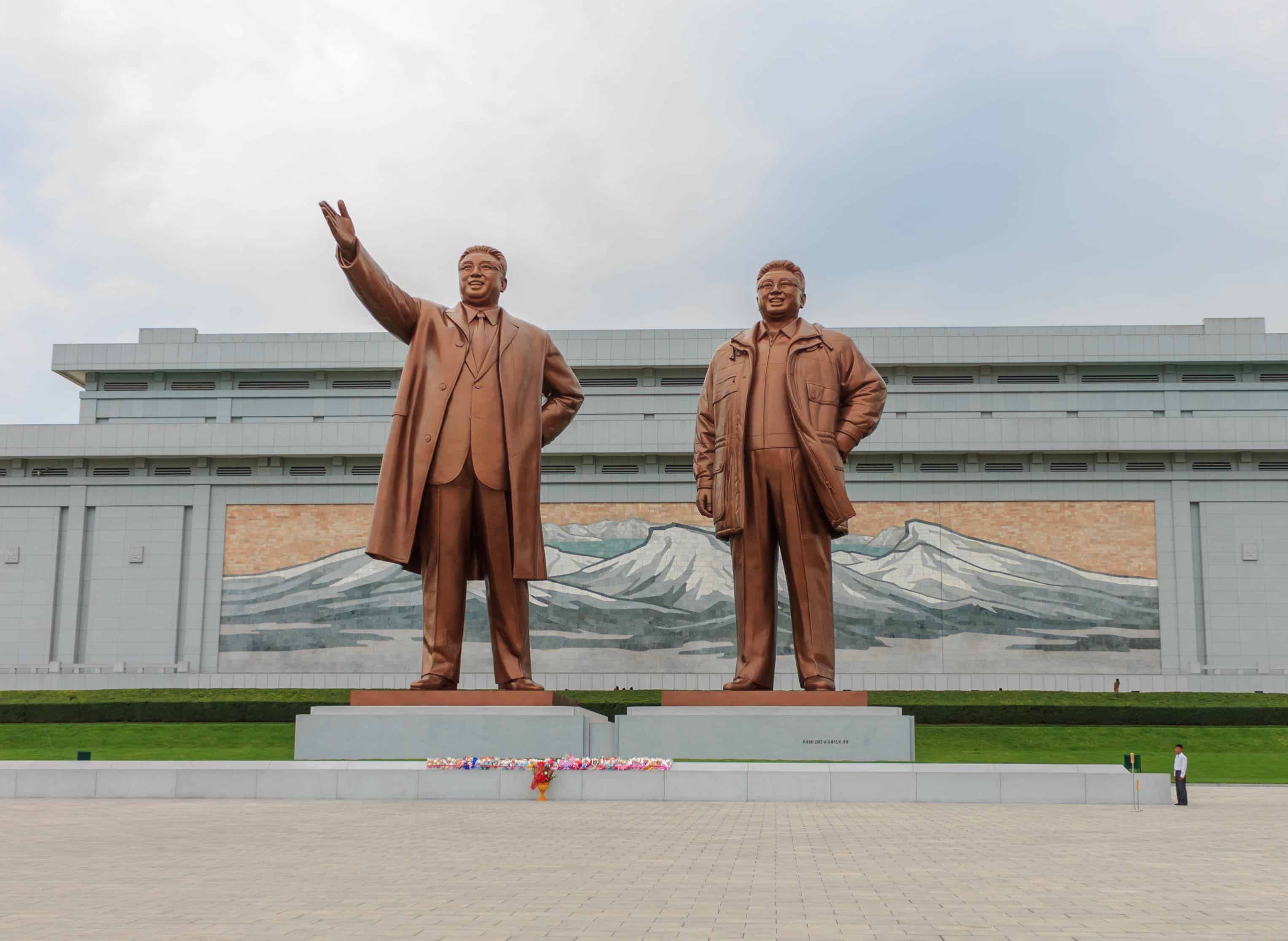
In 2011, Kim Jong-Il’s son, Kim Jong-un was announced as the country’s new leader. He remains at the highest level of power in North Korea up to this day.
You can find a propaganda village in North Korea.
Near the border with South Korea, the Kijong-dong Village was built. It was North Korea’s way of showing off to its southern neighbors. This village was built in the 1950s and had electricity which was a luxury at that time.
The village had big buildings that light up every night according to schedule. The streets near it had soldiers and the same women living in the community for 15 years. When technology boomed, and the people from the south had the means to see the village closely, they were shocked to find out the truth. The houses in the village were mere boxes without any inner walls, ceilings, and even floors.
North Korea is not a communist country.
Contrary to common belief, North Korea does not run a communist system. Although it’s believed that they follow the Marxism-Leninism doctrine. The ideology of communism was abolished in the 1950s, since then, North Korea has been practicing the Juche idea, a continuation of the teaching of Marx and Lenin.
The connotation of the Juche idea is autonomy, self-reliance, and independence. It is an adoption of socialist self-reliance. Over time, the mention of communism started getting wiped from the constitution of North Korea, and in 2009, it eventually disappeared altogether.
Seafood export is big in North Korea.
China is North Korea’s main partner in trading. At least 60% of North Korea’s goods go to its neighboring country, and their main products are seafood and fish. It makes up for at least a quarter of goods that are sold abroad.
Also, North Korea is one of the top countries in the world that export fishery products. Aside from seafood, North Korea also exports monuments.
North Korea is the world's only country ruled by a dead man.
North Korea has a very unique form of ruling. Necrocracy is a government that still follows the rules of a former and dead leader. How is North Korea able to do this?
This is because Kim Il-sung was declared as the Eternal Leader of the Democratic People’s Republic of Korea (DPRK). This just means that all the incumbent leaders of the country will only bear the Supreme Leader title, but the Eternal leader will always and forever be Kim Il-Sung.
The Supreme Leader will be the chairman of the Worker’s Party and the Army’s Supreme Commander. However, he will not hold the country’s presidential status.
The flag of North Korea is symbolic.
On July 10, 1948, the flag of North Korea was introduced. It was right after the proclamation of the Democratic People’s Republic of Korea. There are three colors on the flag — red, blue, and white. It has a 1 to 2 ratio from width to length.
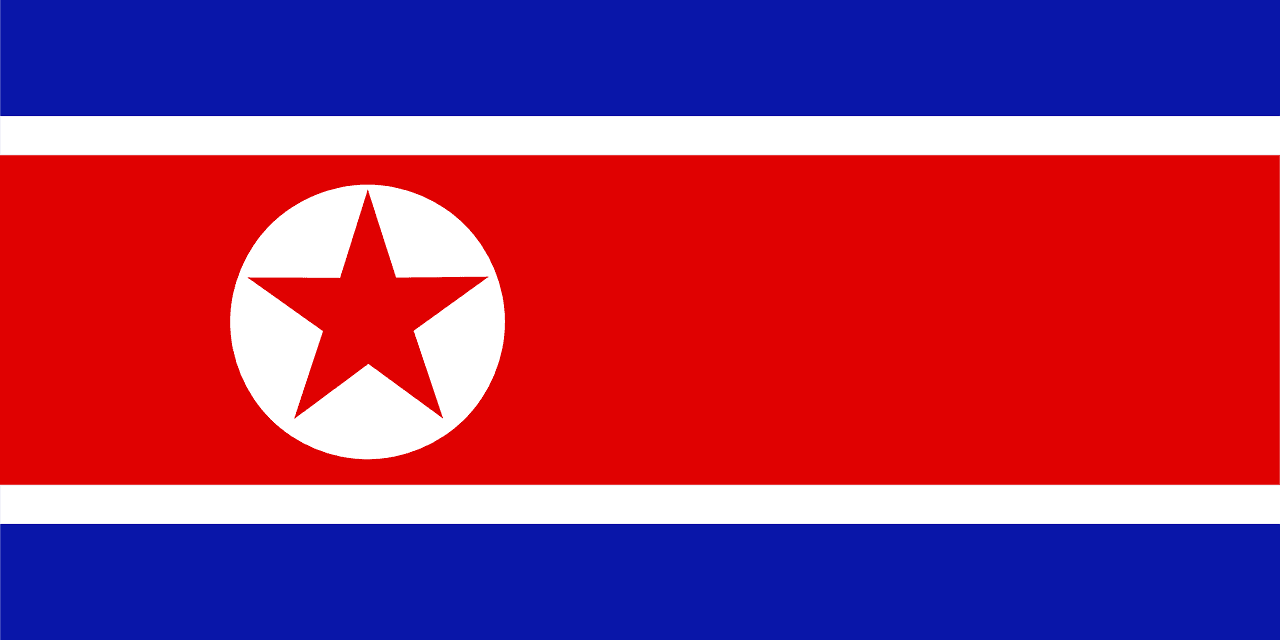
The flag consists of two blue horizontal stripes separated by a wide red stripe with thinner white stripes. Towards the center is a white disk with a red star. The red star and stripes symbolize the country’s communist commitment, while the blue is a peace commitment. The white areas stand for dignity, strength, and purity.
North Korea's economy is strictly coordinated by its government.
Currently, North Korea continues to adhere to its centralized command economy. With a GDP of $28.5 billion, North Korea ranks 115th in the world. Their economy is a standard component as that of a communist country, even though their constitution states that they are no longer under a communist system. This means that their economy is coordinated and centrally planned by the government.
Military service is mandatory for men and women in North Korea.
While there are also countries that have rules of obligatory military service, it’s not as lengthy as North Korea’s. Before the recent changes, males aged 18 and up must serve 13 years in the military. It was only after 2003 that the term was reduced to only 10 years.
Women got in the loop of mandatory military service, too. In 2015, the government released a memo that after North Korean women graduate high school, they must enter the military until they’re 23. No exceptions whatsoever for this ruling. With that, they have at least 6 million paramilitary personnel and 1 million active militaries on duty.
People in North Korea cannot name their kids after their Supreme Leader.
Probably one of the craziest North Korea facts in this list is that North Koreans cannot be named after their leaders. If someone is already named as that of the leader, before the accession of power, the name must be urgently changed. This was also a thing for Kim Jong-Un’s father. He also issued a decree about this in 2011 prohibiting anyone to have the same name as him.
People cannot be named after the leaders of North Korea, but some flower names got away with it.
In North Korea, you will find flowers named Kimilsungia and Kimjongilia. Kimilsungias are orchid hybrids, while Kimjongilias are begonia hybrids. And while it may seem like make-believe names, they are not. These are flowers that existed long before. Neither of these hybrid flowers is a North Korean symbol as the honor goes to magnolias. But annual exhibitions are held every year.
Citizens in North Korea have limited access and choices.
Technological advancements have allowed people to surf the internet and watch a variety of shows depending on preference. But in North Korea, they only have three channels. Two of these channels only air during the weekend, and soap operas from South Korea are smuggled.
North Koreans also have a very limited option when it comes to choosing where they live. Even if they prefer to live in the capital, Pyongyang, if they do not pass as elite, they cannot live there. It is only for the healthy, loyal, and trustworthy citizens of the country.
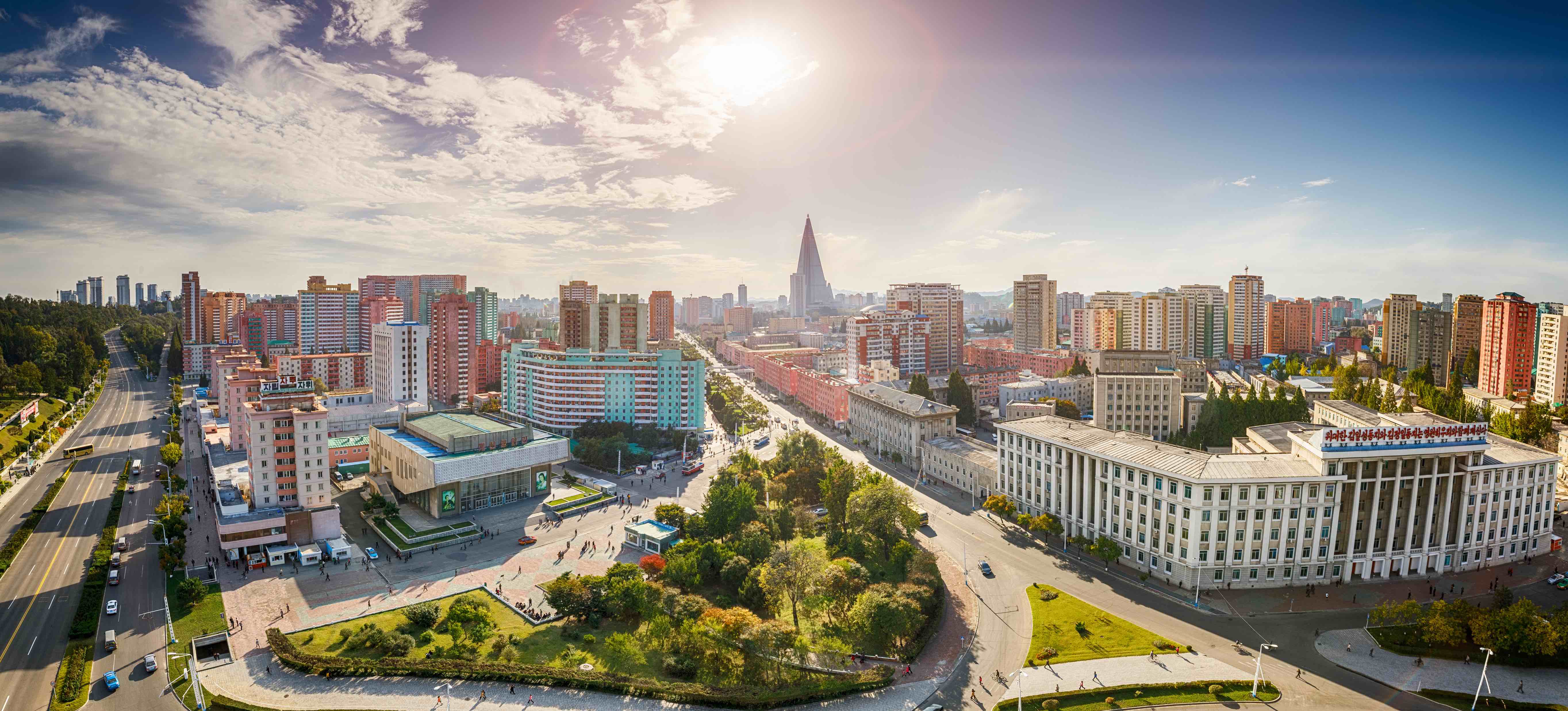
Tourists can only visit some parts of North Korea.
If you’re planning to visit North Korea anytime soon, you must register for a guided tour. This is because there are only cities and areas where tourists can visit.
Historically, Pyongyang has been restricted from tours but changes have been made recently. Lou is a town in the northeast region where foreigners are free to photograph, mingle, and explore. With this, the country is hoping to expand the development and tourism in that region. The country has a total of nine provinces, 28 cities, and several Special Economic zones. Only 15 cities are open for foreigners and tourists.
Rollerblading is popular in North Korea, especially in its capital.
A National Geographic photographer revealed that rollerblading is a popular thing in North Korea. There are a lot of skating and rollerblading rinks in Pyongyang, the capital city. Even in smaller cities and provinces, rollerblading is also something that North Korean citizens enjoy.
Drugs are common and unregulated in North Korea.
Drug abuse is a common problem and even a taboo in many parts of the world. But in North Korea, drug use is fairly common and unregulated. Marijuana plants are everywhere, and smugglers sneak them to neighboring countries like China for foreign profit. According to reports, at least 30% of North Koreans practice substance abuse.
International reports also reveal that crystal meth and methamphetamines are common in the country. Although these are not commonly permitted, it is still very much widespread. It’s said that workers mostly use meth to suppress their hunger. This allows them to work long hours at factories and farms.
North Korea also holds political elections.
One might find it strange that North Korea still holds elections even though they’re in some kind of dictatorship. But yes, they hold elections every five years.
But what’s unique about their polls is that the ballots they get only have one candidate name. It’s not a matter of voting who they want, but it’s a choice if they’re for or against the sole candidate. There will be two boxes and one will be for the positive votes, while the other is for those who are against.
Prison camps are rampant in North Korea.
Since the country runs with total dictatorship from its leaders, many citizens are sent to prison for treason and many other petty crimes.
Around 150,000 to 200,000 citizens live in prison camps heavily surrounded by electric fencing. The most horrible camp conditions are those imprisoned for political crimes. Offenders can have extended families imprisoned on their behalf or with them.
Prisoners are forced to work as miners, loggers, and farmers in very harsh conditions. They also have limited access to tools which makes the work even harder.
Kim Jong-Un was not the original choice as Supreme Leader in North Korea.
From 1994 to 2001, Kim Jong-Nam was considered the heir to the current power of the family. He was Kim Jong-un’s paternal older brother. However, he was exiled from the country in 2003 since he became a critic of their family’s regime.
In fact, in 2001, Kim Jong-nam was arrested in Tokyo when he traveled to Disneyland using a fake passport. On February 13, 2017, he was assassinated by North Korean suspects in the airport of Kuala Lumpur, Malaysia.
Children in North Korea provide everything for school.
In most countries, school children only provide personal things for their classes. But it’s a different case in North Korea. School children need to provide their own chairs and desks. They even have to pay for their heating. Students even plow the fields for the government. Because of this, some parents like to keep their kids at home. They need to bribe the teachers for that, too.
Informants are everywhere in North Korea.
This is one of those North Korea facts that will make anyone appreciate their freedom. In the country, informants to the government are everywhere. These informants report and monitor citizens that display criminal behavior and disobedience to the government. Punishments are in varying degrees from unauthorized access to TV broadcasts down to haircut violations.
North Korea used to have its own time zone.
On August 15, 2015, North Korea adopted its very own concept of time. Theirs have shifted at least 30 minutes apart from any country or place in the world. Pyongyang and the rest of North Korea are set at GMT+08:30. According to sources, this was the time that the nation was using before the Japanese colonization during the twentieth century.
In April 2018, Kim Jong-Un decided that North Korea would return to GMT +09:00, same as South Korea. This movement was seen as a step taken to unify both nations. This change was officially implemented on 4 May 2018.
People in North Korea do not know much about the rest of the world.
Apart from having limited channels, all kinds of legal television shows are tuned into domestic programming. This means that the state controls what’s being shown on screens.
Also, the Internet does exist, but it has a closed domestic network. Many North Koreans do not know anything about the events happening in the world. They would have information only if they smuggle outside the country. Apart from that, they only have first-hand access to the propaganda they are fed daily.
There are 28 approved haircuts in North Korea.
They say that your hairstyle will say so much about your personality, and how you view the world. It’s a statement for many. But in North Korea, the people only have limited choices, and it must be from the 28 approved styles, to be exact.
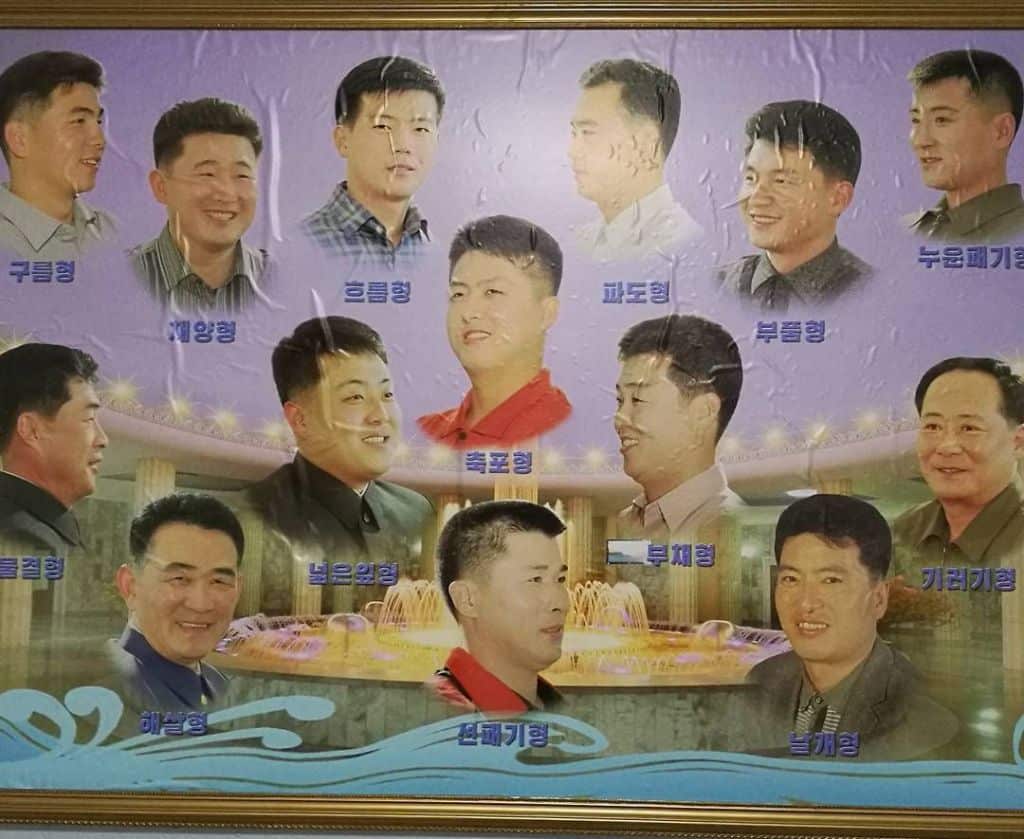
Married women are given more options compared to unmarried ones. Unmarried women are only allowed to have short hair. For the men, older ones can have at least 2¾ hair length, while the younger ones should be less than 1½ inch. You may find this absurd but it’s one of those North Korea facts that are just too outlandish to believe.
The first missile program of North Korea was from the Soviet Union.
In the 1970s, the Soviet Union helped North Korea develop its very first missile program. It was named the Taepodong-2 missile. The missile has a range of at least 4,100 miles, but it’s yet to be fired for testing. Some of their medium-range missiles can fire over Japan, and other neighboring countries.
People in North Korea are shorter than South Koreans.
According to recent research, they found out that North Koreans are two inches shorter than South Koreans, on average. In the study, those who escaped North Korea and those born after the 1950s Korean War were being observed.
Researchers believe that this is because of malnutrition. The World Food Programme states that at least 6 million North Koreans are badly in need of food aid. At least ⅓ of their children are either stunted and chronically malnourished.
Agents from North Korea kidnapped a South Korean director.
In 1978, an award-winning director from South Korea was kidnapped. Shin Sang-ok, and his wife Choi Eun-hee, were in Hong Kong when they were kidnapped by North Korean agents.
They were in prison for three years, and after that, they were instructed by then-Supreme Leader, Kim Jong-Il to produce and make films for North Korea. They were able to escape the country eight years after their abduction. By then they already made dozens of movies and films for the leader and the country.
North Korea doesn't celebrate Christmas.
In North Korea, Christmas is not a big event or celebration. However, they do have an event on December 24th, and it’s the birthday of Kim Jong-Il’s mom. Also, Valentine’s Day is not a special holiday. However, February 16 is an important day. It’s called, “The General’s Birthday”. Definitely an interesting addition to all these North Korea facts.
Healthcare is free in North Korea.
Reports say that the government in North Korea pays for its citizen’s healthcare. Recently, the country has suffered a severe shortage of medical equipment and medicine. In most of the hospitals, there are still unused, cutting edge equipments, because the doctors and nurses do not know how to man and use it.
North Korea also has amazing athletes.
It might be something that not everyone is aware of, but North Korea also excels in sports. Since 1972, they’ve already had several awards in Judo, wrestling, and weightlifting. So far, they have nine gold awards, 12 silver medals, and 17 bronze medals.
Among the many talented athletes in the country is Kye Sun Hui. She was only 17 when she won an Olympic award for Judo. She was the youngest person ever to win a gold medal for the sport.
The White Head Mountain is the highest peak in North Korea.
Mount Paektu or the “White Head Mountain” is the highest point in the Korean Peninsula. It’s at 2,744 meters or 9,003 feet. Legend says that Paektu is the birthplace of the civilization of Koreans. This is the reason why it remains sacred to both North and South Koreans to this day.

North Korea practices the freedom of religious belief.
Based on reports and estimates, North Koreans are mostly atheists or irreligious. However, there is also a good amount of their population practicing Korean Chondoism and Shamanism.
Small communities also make up for Christians and Buddhists. Despite saying that they allow people to exercise their own beliefs, they have already tortured thousands from practicing a religion.
Tourists in North Korea cannot use their local currency.
If you’re planning to tour the country anytime soon, it’s best to keep your dollars in check. Tourists will not be able to pay using the local currency of North Korea. When buying in local shops, foreigners can pay using South Korean Won, US Dollar, Yuan, and even Euro.
Bicycles in North Korea have license plates.
Yes, you read that right. Buying a bicycle in North Korea is not that affordable. You need to have it registered just like cars. Aside from that, it’s almost next to impossible if you plan to buy a car in the country. Aside from it being sky-high expensive, only the rich and the powerful can own it.
You need to have permission to talk to the locals in North Korea.
For tourists and foreigners, you might get a local in trouble if you talk to them. Although they won’t be executed or jailed for having such a conversation, they will definitely have a talk with North Korean authorities about that. If you try to take photos or talk to them, there’s a big chance that the locals will bat an eye and run away. Also, tourists can’t just take photos everywhere. The guides will not allow that.
Locals in North Korea cannot travel internationally.
Aside from some North Koreans going to Russia or China to earn money, regular travels, both internationally and locally, are actually heavily regulated. Citizens cannot travel anywhere in the world for vacation because it’s not allowed.
Travel restrictions inside the country are also in place. If locals want to visit their family members or friends in another village, they must ask for permission from the government before doing so.
Former President Donald Trump first met the leader of North Korea in 2018.
In 2018. then-US President Donald Trump had a summit meeting with the Chairman of North Korea, Kim Jong-Un. This meeting happened on June 12, 2018, at the Capella Hotel in Singapore. It was the first meeting between the two, and it was known as the Singapore Summit.
During the meet, they agreed to have peaceful relations and security guarantees for North Korea. Talks about the denuclearization of the peninsula, as well as the recovery of the remains of soldiers took place.
Foreign investment in North Korea is booming.
In 2010, foreign investment in the country reached at least $1.4 billion. This is according to the United Nations Conference on Trade and Development.
Several Chinese and European companies have already invested in copper mines and opened casino hubs for tourists. This goes without saying that North Korea is slowly making progress when it comes to international relations.
Some dates are not to be celebrated in North Korea.
If your birthday falls on either December 17 or July 8, you cannot expect to have a festive event. It’s a ritual in the country to not have any kind of celebration during those dates as these two days are the death anniversaries of Kim Jong-Il and Kim Il-sung.
The former leader of North Korea has never been on a plane.
Reports say that the late leader of North Korea, Kim Jong-Il, has never flown or traveled on a plane. He was so afraid of flying that he would only travel by land through custom trains made specifically for him.
There are a lot of infiltration tunnels between North Korea and South Korea.
There are currently four infiltration tunnels found so far along the DMZ. These tunnels lead from North Korea straight to South Korea. Experts have reasons to believe that there are more than 20 tunnels in the country. These tunnels could allow the rapid invasion of at least 30,000 soldiers. With these numbers, it’s even scary enough to think about what they can do if these infiltrations were successful.
Workers in North Korea have an average salary of $5 per month.
Aside from the limited access to radio, the Internet, and television, the way of life for normal North Koreans is described as hard. Not only are they isolated from the rest of the world, but they also have problems with getting enough food.
With an earning of less than $5 every month, citizens in the country remain malnourished and food-deprived. Workers do not have free time as they have a mandatory six-day work week. Also, their seventh day of the week is spent on voluntary work.
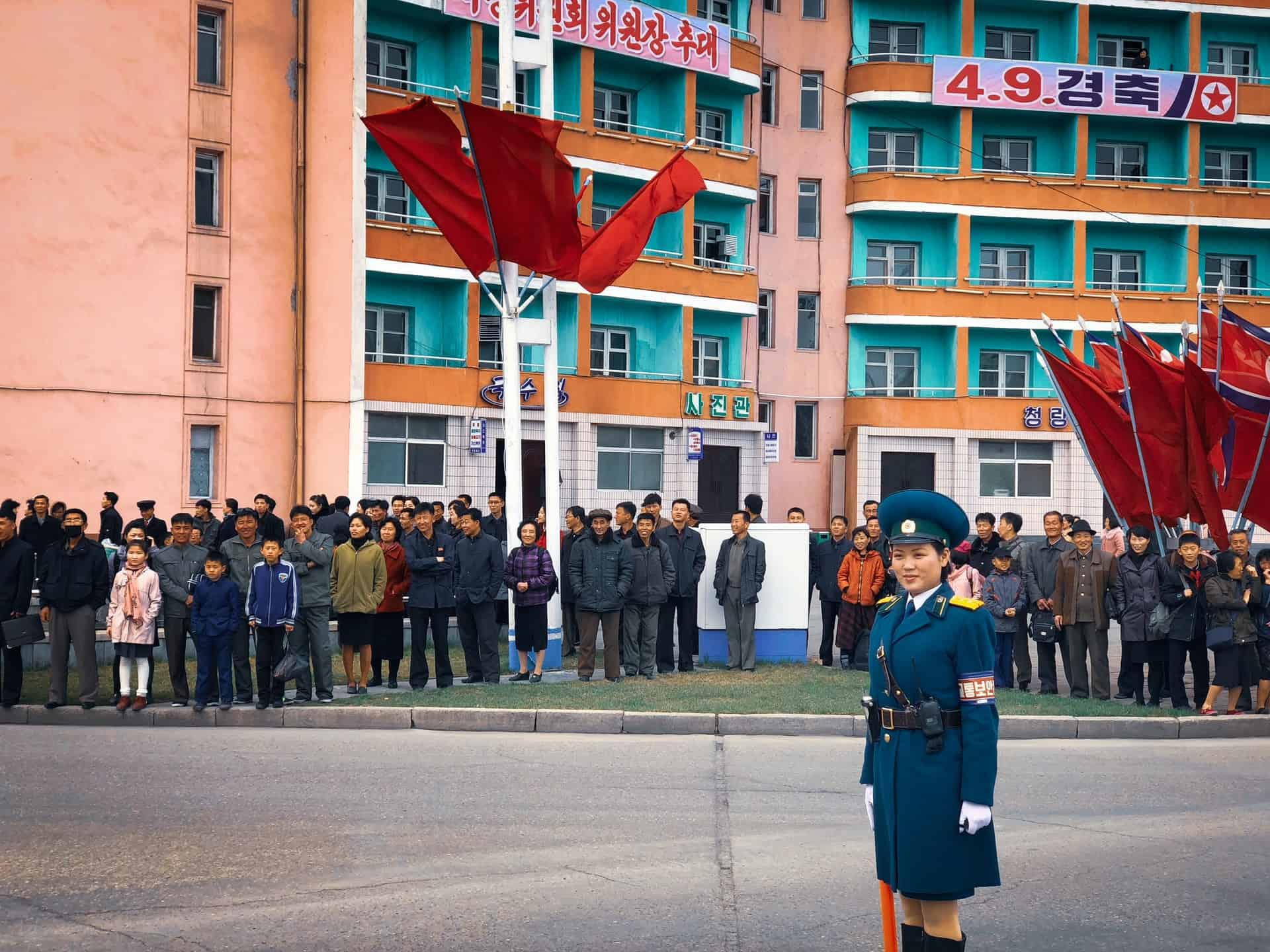
North Korea is rich in mineral resources.
One amazing truth in these North Korea facts is that the country is rich in resources. They have most of the Peninsula’s minerals. This includes ore deposits, high-grade iron, lignite coal, copper, lead, silver, phosphate rock, gold, and tungsten.
North Korea ranks last in the freedom index.
According to the 2020 World Press Freedom Index, North Korea ranks last in the freedom index. In 2019, it was second to the last, but in the past year, it managed to be on the bottom list. This means that the world believes its citizens are still kept in ignorance.
The quality of life in North Korea is improving.
Many North Koreans still struggle with government oppression, unfair work conditions, and food shortage. But according to reports, some citizens say their everyday life is somehow already conforming with the rest of the world. DVD players, mobile phones, and devices were unknown to them before, but are now coming to light.
They also have access to recreational opportunities like water parks, movie theaters, and amusement areas. It’s mostly available in Pyongyang, but there are also other areas where these centers are growing. It is with great hope that one day, North Korea will open its doors to the world and have citizens that will have their own set of choices, preferences, and free will.
Was this page helpful?
Our commitment to delivering trustworthy and engaging content is at the heart of what we do. Each fact on our site is contributed by real users like you, bringing a wealth of diverse insights and information. To ensure the highest standards of accuracy and reliability, our dedicated editors meticulously review each submission. This process guarantees that the facts we share are not only fascinating but also credible. Trust in our commitment to quality and authenticity as you explore and learn with us.
